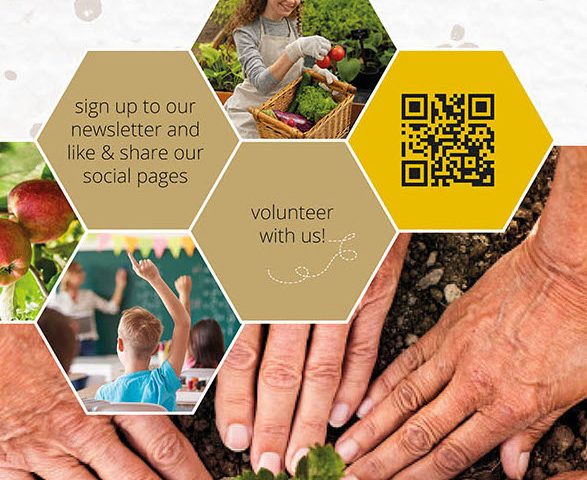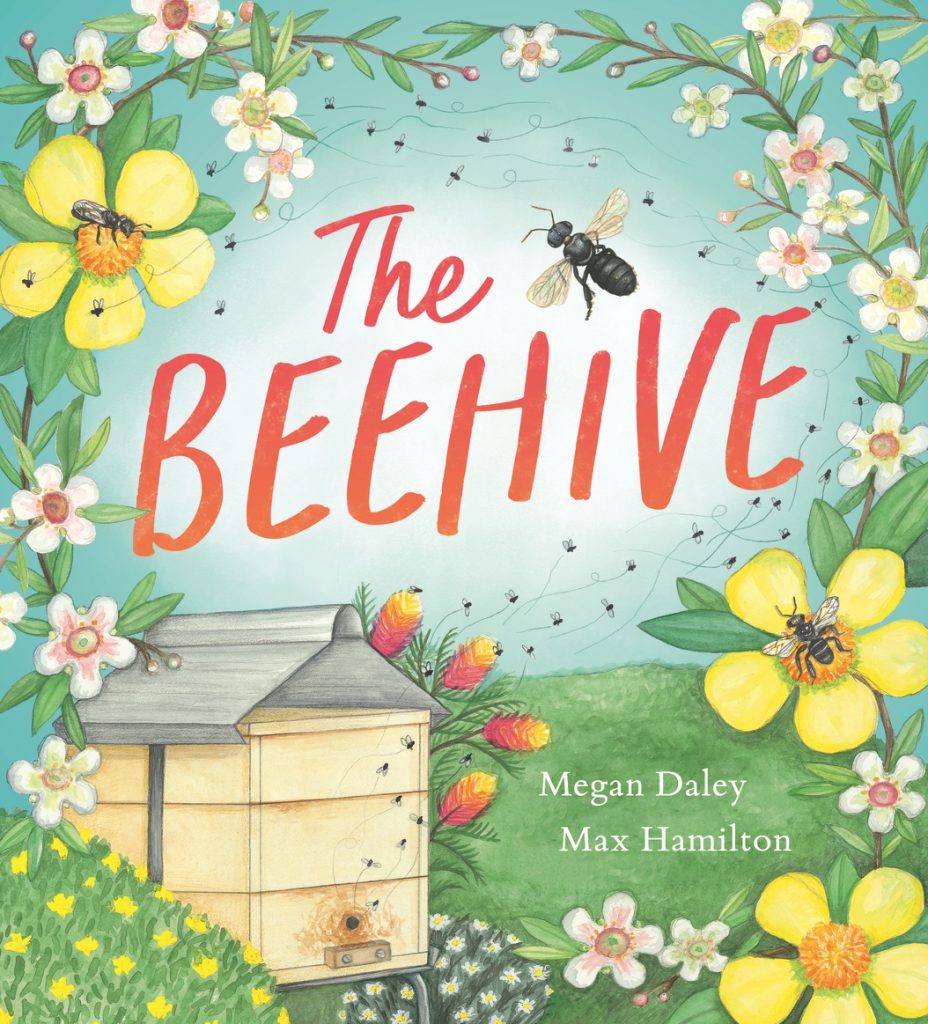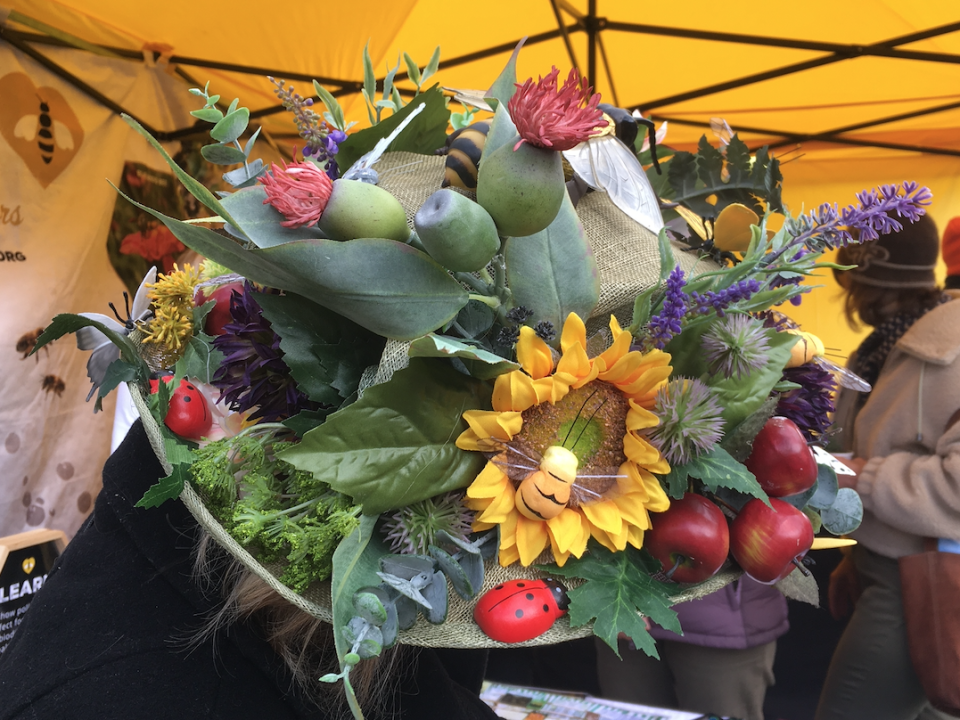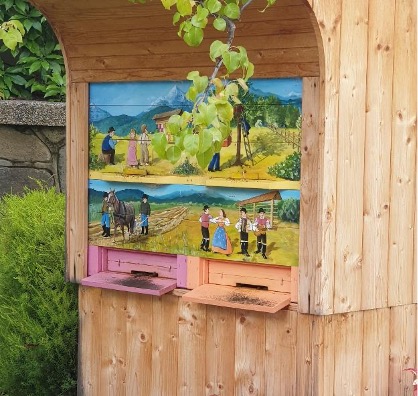
February 2025 – late summer
March 7, 2025Buzzing Across Canberra: Introducing Cormac Farrell, Beekeeper of Parliament House
We’re thrilled to feature Cormac Farrell, the Head Beekeeper at Australian Parliament House, in this edition of the ACT for Bees newsletter. Cormac brings a unique blend of ecological expertise and deep passion for pollinators to his work maintaining the thriving hives not only at Parliament House, but also across various embassies around Canberra.
In his article, Cormac shares insights from the hive—offering a behind-the-scenes look at urban beekeeping in the heart of the nation’s capital. From navigating the challenges of caring for bees in high-profile locations to celebrating their quiet diplomacy in our ecosystems, his reflections are as thoughtful as they are inspiring.
We’re also grateful for Cormac’s ongoing support of our work with Ginninderry, where his knowledge of native flora and ecological systems has been invaluable in shaping pollinator-friendly landscapes. His commitment to biodiversity is helping cultivate a more resilient and bee-friendly Canberra.
Read on to discover Cormac’s journey, the surprising places bees are thriving, and why supporting pollinators is more important than ever.

Welcome to Our New Bees!
We’re buzzing with excitement to welcome 6 new members to the ACT for Bees community!
Would you like to join our hive of changemakers? We’re looking for friendly volunteers to help out with a 2-hour shift at the Capital Region Farmers Market or the BeFair on Saturday, May 24th.
By becoming a member—just $10 (waged) or $5 (unwaged)—you can support our work and get involved in a range of exciting projects and events throughout the year.
Join us today!
Email us at info.actforbees@gmail.com to receive your membership form.
Best wishes
Julie, Vicki, Mark, John, Charlie, Didi and Jon
The ACT for Bees + Other Pollinators team.

World Bee Day 2025 – Bee inspired by nature to nourish us all.
Ever since it was adopted by the United Nations in 2018, World Bee Day has been a fixture on the Canberra calendar for everyone concerned about pollinators, The theme of this year’s UN World Bee Day is Bee inspired by nature to nourish us all, highlighting the critical role that bees play in our agriculture, as well as the overall health of ecosystems that sustain the planet. With the ongoing spread of Varroa mite impacting honeybees, as well as the ongoing impacts of pesticides, habitat loss and global heating across all pollinators, this message is really starting to resonate with the wider public.
World Bee Day falls on 20 May every year, which coincides with the birthday of Anton Jansa. He is a famous Slovenian beekeeper who created the first systematic curriculum to teach beekeeping as a profession. While the honeybee often gets most of the attention in the media, the day has always explicitly focused on native bees as well. The beautiful colors of our natives, as well as their fascinating life cycle has made them social media stars over the past few World Bee Days!
While I originally developed an interest in native bees as part of my work as a botanist, the thing that I am best known for these days is my volunteer role as Head Beekeeper for the Australian Parliament. This has been a really fun, whimsical role that brings me a lot of joy, and even became one of the inspirations for my recently published book on urban bees. While our national parliament is not the first Parliament to keep bees (in Australia that honour belongs to the West Australian Parliament), it is definitely the most high-profile apiary, and is also the only site that keeps both native and honeybees.
The communal stingless native bees (sometimes called sugarbag bees) have been embraced by the building almost like pets! To be fair, they are very cute, and allow for close-up interaction with Members of Parliament and staff, which are not safe to do with honeybees. There is also the interesting challenge of keeping these hives well outside of their natural range – requiring them to be migrated to a warmer climate for winter.

Figure 1 Inside the honey chamber of a native stingless beehive, showing the honey pots
The Parliament bees also turned in to a range of fascinating offshoot projects, as several embassies became interested in beekeeping and asked my advice. Once they realised that it was viable to keep bees with volunteer teams, several embassies jumped into this with enthusiasm. Several started with native bee hotels before moving to honeybees, while most went straight to their native bee, the honeybee!
Over the course of the last eight years, we have seen the Slovenian, Swiss, Swedish, Belgian, Italian, French, Slovakian, Austrian, and Czech embassies host beehives, and there was even a friendly rivalry between the embassies as to who could produce the best honey. As for my favorite beehive to help manage, that is a beautiful and unique blend of art and function at the Slovenian embassy. Slovenia was the instigator of World Bee Day, and the honeybee is central to their culture. A key part of this is the unique hive that you see throughout their country – known as the AZ hive, this features beautifully painted panels. While more common in Europe, this style of hive is relatively rare in Australia, so we are lucky to have one here in Canberra at the Slovenian Embassy.

Canberra has always been a focal point in the World Bee Day events calendar, due in no small part to the enthusiasm of the diplomatic community. This year is no exception, with a variety of events, seminars and films to honour and celebrate our pollinating friends. There is also a national website set up through Wheen Bee Foundation to promote all of the events across the nation: www.worldbeeday.org.au/explore/
I will be personally leading a tour of the Parliament Apiary this year as part of World Bee Day celebrations – hopefully I will see some ACT for Bees members there!
Cormac Farrell
Head Beekeeper
Australian Parliament
Save the Dates!
World Bee Day will be BUZZING! 20-24th May 2025
As foreshadowed in our February newsletter, World Bee Day is on 20 May 2025, and the week before will be buzzing with events in Australia and worldwide!
Details of all events are on the World Bee Day Australia website.
Create a Pollinator Friendly Garden
When: Tuesday May 13th 6pm
Where: FREE online event Create a Pollinator Friendly Garden
ACT for Bees are teaming up with the Canberra Environment Centre (CEC) for an online ‘Creating a Pollinator Garden’ with tips from the CEC on how to create healthy soil. Book HERE
Capital Region Farmers Market
When: Saturday 24th May, 7:00am-11:00am
Where: Old Well Station Road, Mitchell ACT
Wear yellow to the market and enjoy the celebration of our amazing pollinators. ACT for Bees will be there with children’s activities and buzzing with information. Come and say hello!
World Bee Day Parliament House Tour
When: Saturday 24th May, 11:00am-12:00pm
Where: Australian Parliament House
Join Parliament House Volunteer Head Beekeeper, Cormac Farrell for an insightful tour of the APH beehives. Meet the busy bees who call Parliament House home and discover the crucial role they play in maintaining the landscape and health of Capital Hill.. Book HERE
The Belgian Embassy .beFAIR
When: Saturday, 24th May, 11:00am-3:00pm
Event Highlights:
• Bee Tours: Guided tours through our hives with expert volunteers.
• Food & Drinks: Enjoy delicious treats while listening to live music.
• Embassy Booths: Discover interesting facts and goodies from our colleagues.
• Kids Village: Fun activities including a jumping castle!
• Giant Raffle: Win amazing prizes! . More information HERE
A few interesting books……

Urban Beekeeping: The City as a Hive
by Cormac Farrell (Head Beekeeper, Australian Parliament House)
An instruction manual for change, Urban Beekeeping, explores how we can adapt urban spaces to create a more sustainable future, both for bees and for ourselves.
Urban beekeeping has become a booming pastime in cities throughout the world. But why just fit bees into our cities when we could reshape our cities to fit them?
Written by beekeeping expert Cormac Farrell, this guide is a practical guide to establishing a thriving urban hive. It covers a range of topics, from understanding different bee species and selecting the right ones for your space to setting up your apiary, providing the right plantings for your bees, choosing the right hive, and managing your hive effectively.
For those passionate about beekeeping, environmentally conscious gardeners, and urban planners, this book offers a wealth of knowledge on creating local green spaces that foster thriving nature. From community gardens to rooftop apiaries, cities hold immense potential for sustainable food production. Urban Beekeeping advocates for tapping into this potential, managing bees for beauty, food, and the local environment.
This is more than a manual for beekeepers and gardeners who want to go beyond their backyard; it is a guide to changing the whole concept of our cities, making places where we produce quality food locally and creating spaces for native species.
Books for younger readers

The Beehive
by Megan Daley and Max Waker, Walker Books, 2024
An amazing look into the native stingless bee, the heroes of pollination, from celebrated teacher librarian and author Megan Daley and CBCA Award-winning illustrator Maxine Hamilton.
Lots of amazing facts are delivered through an engaging story.
Suitable for ages 5+

The Bee Squad by Judy Friedlander
Dr Judy Friedlander is the founder of PlantingSeeds Projects, the environmental organisation whose flagship program is the B&B Highway. The B&B Highway (Bed and Breakfasts for Bees, Birds and Biodiversity) is an educational and practical program that links hundreds of B&Bs at schools in four Australian states to form regenerative corridors.
This book draws from the programme and includes fun projects to allow kids to become champions of biodiversity.




